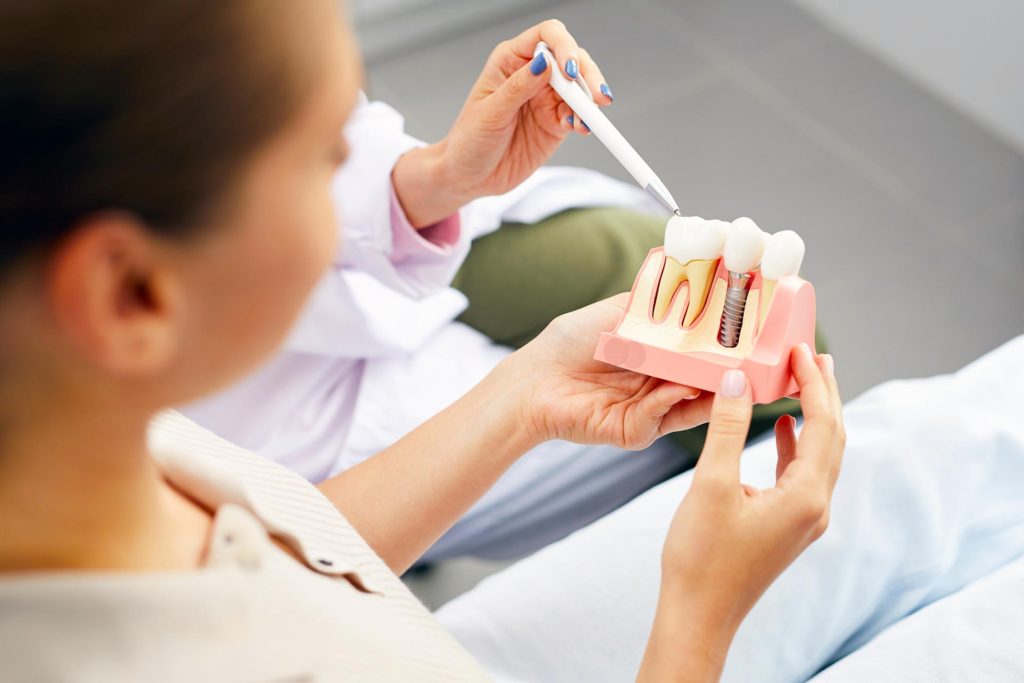
When some people who have dental implants experience unexpected redness, itching or localized swelling after the procedure, they wonder, “Am I allergic to the implant material?”. Titanium and its alloys (e.g. titanium-aluminum-vanadium), which are generally preferred for implants, are considered biocompatible and do not cause problems for most patients. However, there are known rare cases where the body reacts to these metals. Especially in people with a history of allergies such as metal contact dermatitis, skin rashes or irritation-like symptoms that do not go away for a long time after the implant strengthen the suspicion of allergy.
However, it may not be right to immediately blame the implant. In some patients, gingivitis (peri-implantitis or peri-implant mucositis) detected by the dentist or sensitivity in different parts of the mouth may be mistaken for allergies. In addition, antibiotics or antiseptic solutions administered during the operation can also cause skin and body reactions. Therefore, a detailed examination and, if necessary, an allergy test is recommended to understand the real cause of the complaints. In particular, blood tests that measure metal sensitivity or methods such as the “patch test” can reveal which metal is being reacted to.
Some patients are concerned: “The implant contains titanium, but could it be aluminum or vanadium that is affecting me?” Titanium alloys contain these additional metals and can trigger sensitization even at very low levels. Combined with other metals that the patient has been exposed to through food or skin, this can be more pronounced. However, many experts say that these cases are extremely rare, and that hypersensitivity or tissue irritation is more common than a full-blown allergic reaction.
All in all, the chances of a dental implant causing allergies are very low, but not impossible. If you experience prolonged pain, redness, itchy skin or rashes in different parts of the body around the implant, it is important to contact a dentist and, if necessary, an allergist immediately. Options such as removing the implant or rebuilding it with different materials are only considered after a comprehensive evaluation. The patient’s comfort and health are always prioritized.





